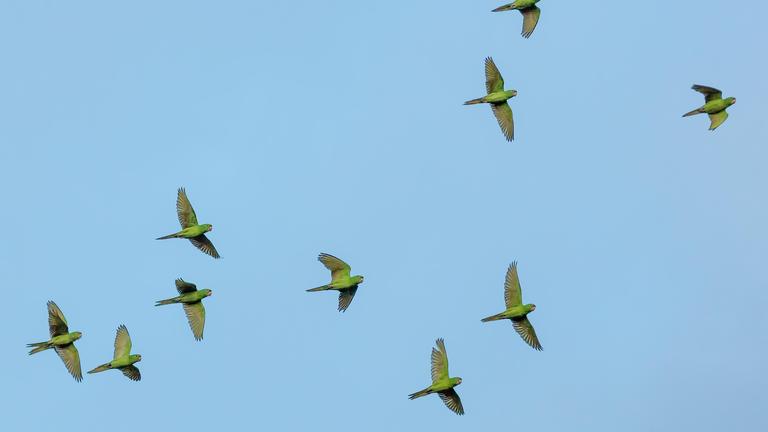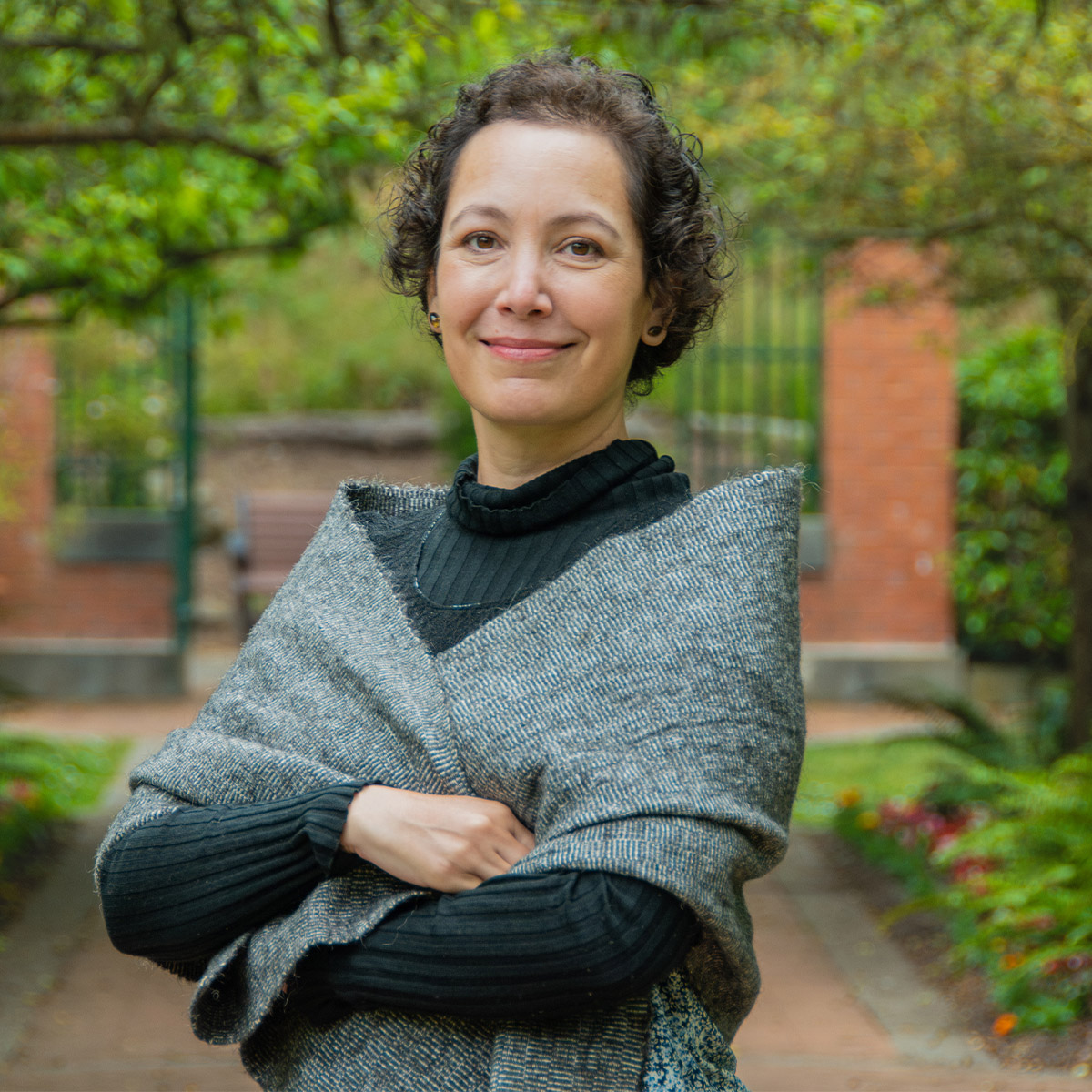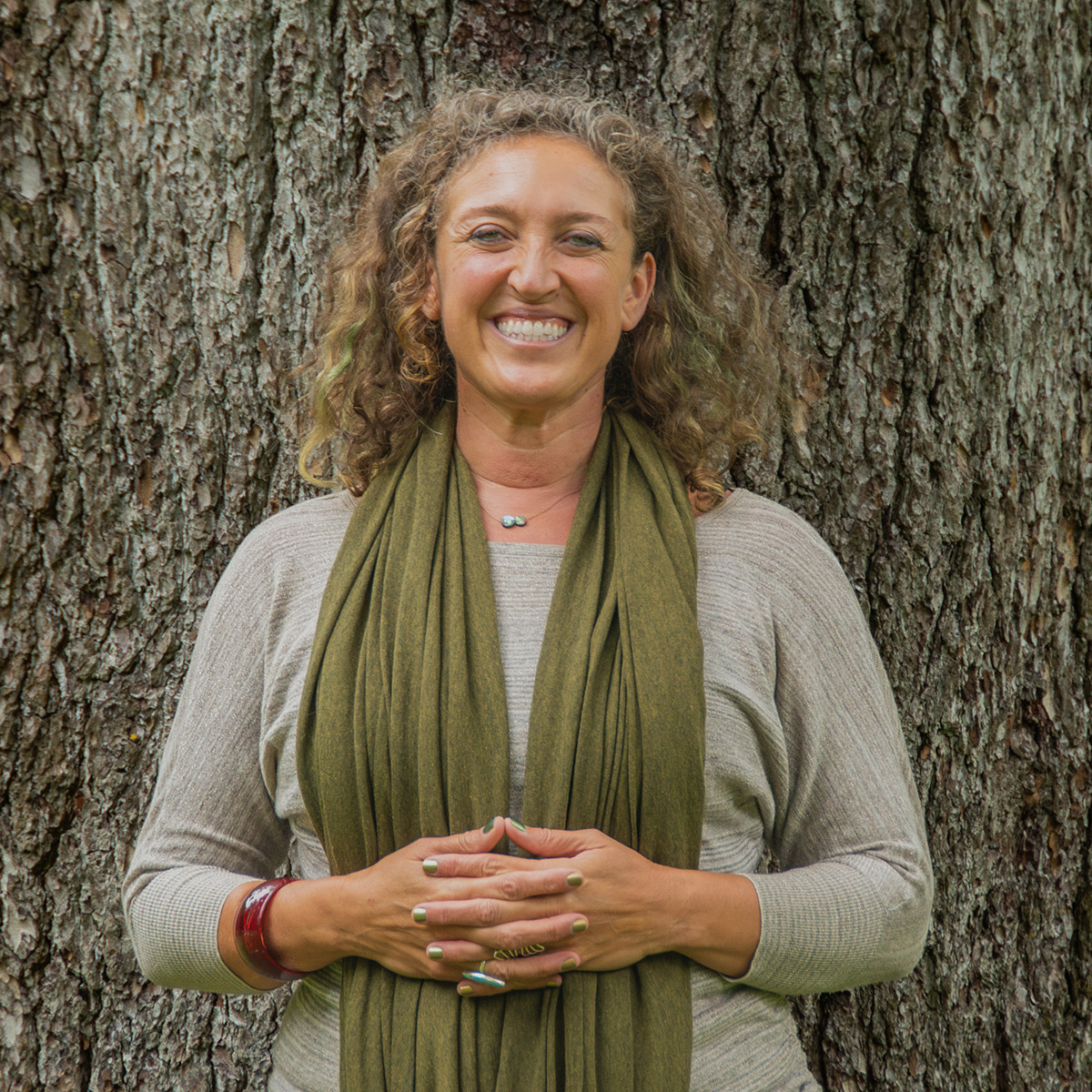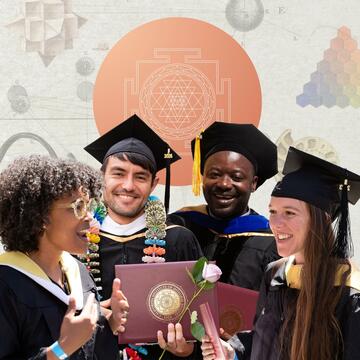In-Person Workshop With Dr. Amber Elizabeth Gray

Understanding the Zapatista Movement for Liberation and Community Building (Livestream)
A Conversation With Charlotte María Sáenz and Zara Zimbardo
The Zapatista movement emerging from Chiapas, Mexico over the past three decades has impacted people all over the world who struggle to liberate themselves from colonial capitalism and Cis-Heteropatiarchy. Creating autonomous community systems of government, justice, health, and education—together with their first Revolutionary Law of Women—Zapatismo is also a pedagogical political-ethics influenced by Mayan cosmology and its regional expression of (Catholic) Liberation Theology.
Between 2012-2019, several CIIS student-faculty-staff delegations traveled to Chiapas to attend various educational encounters that compose part of what faculty Charlotte María Sáenz calls “Zapatista Seed Pedagogics,” a way to describe the mutual education between Zapatistas and those outside their autonomous territory.
Join Charlotte and CIIS faculty Zara Zimbardo for a conversation exploring the ways the Zapatista movement bridges different worldviews, politics, and geographies to collectively revision and remake “a world in which many worlds fit,” an oft-repeated Zapatista slogan. Growing humility and learning to listen in all our relationships with the human and beyond-human worlds, Charlotte and Zara ask how Zapatista pedagogics can inform ongoing struggles for freedom through our personal and collective daily practices.

Charlotte María Sáenz has worked in community education for over 25 years in creative collaborations that question dominant narratives, expand awareness, and build collective knowledge to grow our socioecological relationships. In her native Mexico, she researches how the Zapatista movement engages across geographies in an integrated ethical-political educational process she calls a Zapatista Seed Pedagogics, introduced in GRIETAS: a Journal of Zapatista Thought and Horizons. In Ramaytush territory, she teaches Interdisciplinary Studies in a critical pedagogy, inter-generational Bachelors Completion Program at California Institute of Integral Studies (CIIS) since 2007, and supports the land rematriation efforts of the Muchia-Té Indigenous Land Trust. Previously, she taught for World Learning with the Universidad de la Tierra. She was co-director and media producer for Chicago’s Street-Level Youth Media, and Artist-in-Residence at BHS Quaker school and Al-Jana, the Arab Resource Center for Popular Arts in Beirut. Humbled and inspired by the Zapatistas’ EVERYTHING FOR EVERYONE and reflection-in-action, she joins and invites fellow artists, scientists, and peoples of conscience everywhere to listen more deeply to each other as well as to the subjugated knowledges of our world.

Zara Zimbardo is an adjunct Interdisciplinary Studies faculty in the School of Undergraduate Studies at California Institute of Integral Studies (CIIS). She is the director, a core facilitator and curriculum designer with Partners for Collaborative Change, which supports organizations to become more equitable through anti-oppression facilitation and coaching, and supports community-driven climate resilience planning through participatory action research. She co-founded the White Noise Collective, an anti-racist feminist training and resource organization that supports investigation and transformation of patterns common at the intersection of whiteness and gender marginalization. Zara is a longtime bodyworker and she is an instructor at McKinnon Body Therapy Center. She is passionate about forms of creative facilitation to cultivate critical thinking skills, make unexamined bias conscious, inspire artistic reflection, deepen somatic awareness and build alliances across differences. Areas of research, publications and presentations include: the social construction of whiteness, Islamophobia, subversion of stereotypes in a time of war, social justice comedy, modern monsters and the zombie apocalypse, representations of US militarism, dominant narratives of space colonization, expanded present time perspective, and unlearning ableism in alternative healing spaces.
_____________________________________________________
Accessibility
If you need to request accessibility accommodations, please email publicprograms@ciis.edu at least one week prior to the event. For more information, explore our Accessibility web page.
Recording Policy
This event will be recorded on our YouTube channel to view any time after the livestream and the link will be sent to all registered attendees. We encourage you to register even if you cannot attend live. Portions of the audio will be released on our podcast. Only those watching live can participate in the chat and Q&A.
Refunding Policy
All tickets and donations for this event are nonrefundable.



